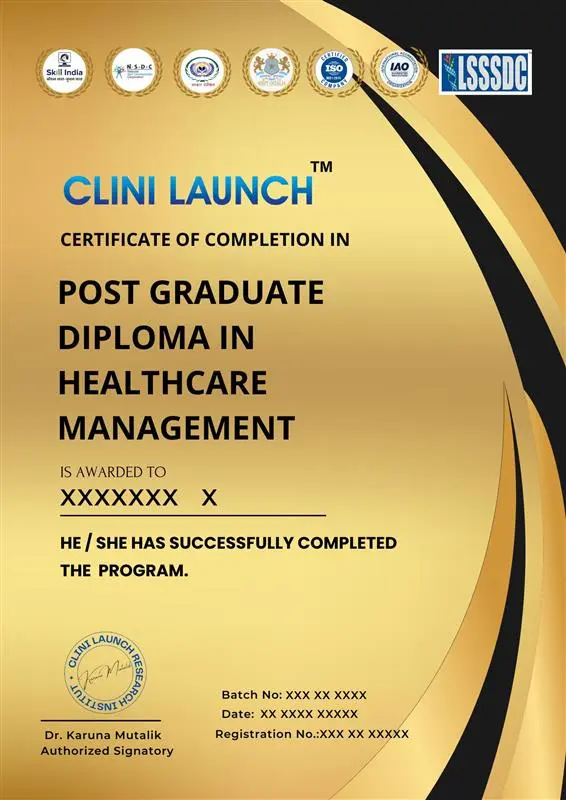PG Diploma in Healthcare Management in Kerala
PG Diploma in Healthcare Management in Kerala – Clini Launch bridges the gap between your clinical expertise and administrative business acumen. Offering a robust pathway for professionals seeking to lead the healthcare sector. This course equips you with essentials skills in hospitals administration, operational management, and healthcare policy. We prepare you for leadership roles in one of India’s most progressive states of healthcare innovation.
- 100% Placement Assistance
- Industry Expert Trainers
- Online/Offline Classes
- Job-ready Curriculum
Gain practical skills required in the field of healthcare management.
Live Online Classes starting on 8th, 15th, 22nd & 30th.
Book Your Free Demo Class Today!
PG Diploma in Healthcare Management in Kerala
PG Diploma in Healthcare Management in Kerala – Clini Launch bridges the gap between your clinical expertise and administrative business acumen. Offering a robust pathway for professionals seeking to lead the healthcare sector. This course equips you with essentials skills in hospitals administration, operational management, and healthcare policy. We prepare you for leadership roles in one of India’s most progressive states of healthcare innovation.
- 100% Placement Assistance
- Industry Expert Trainers
- Online/Offline Classes
- Job-ready Course Curriculum
Gain practical skills required in the field of healthcare management.
Live Online Classes starting on 8th, 15th, 22nd & 30th.
Book Your Free Demo Class Today!

IAO, ISO & IAF Accredited

LSSSDC Membership

BRIT QUALIS Recognized

NSDC Accreditation
Why the PG Diploma in Healthcare Management in Kerala?
A PG Diploma in Healthcare Management in Kerala is a highly advantageous choice for aspiring professionals due to the state’s consistently high healthcare standards, top ranking in national health indices, and its unique blend of modern and traditional medicine. Kerala is known as a medical tourism hub, attracting patients globally due to its quality and cost-effective treatments.
Globally Accredited Courses
100% Placement Assistance
Highly Qualified
Trainers
Job Oriented
Programs
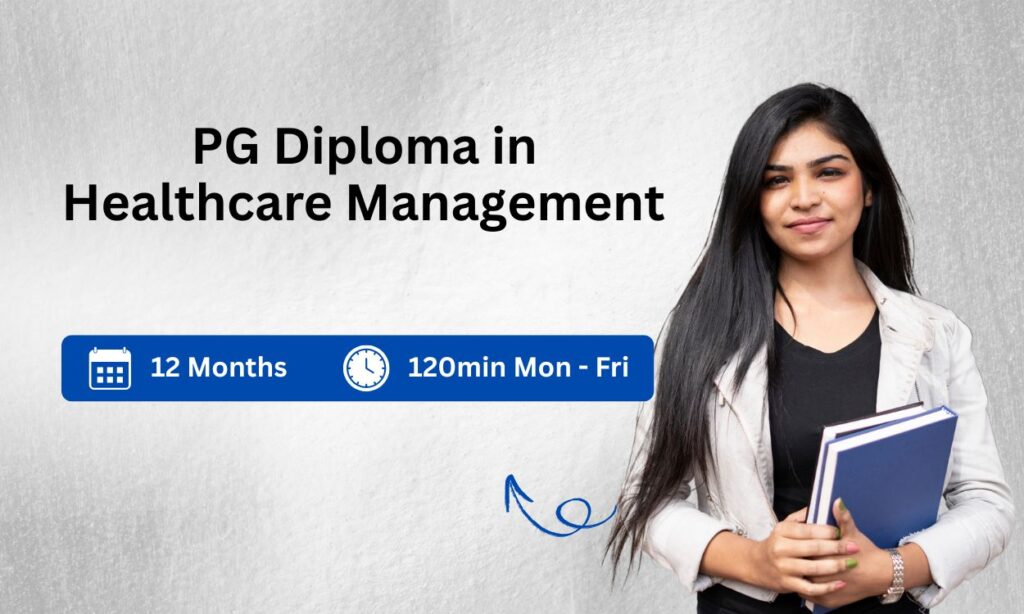
Why Clini Launch?
Industry Driven Curriculum
● Adapt to industry standards
● Gain in-depth knowledge
● Up to date your skill sets
Experienced Instructors
● Interact with seasoned professionals
● Insightful healthcare practices
● Dedicated industry experts
Hands-on Learning
● Live interactive session
● Integrated case studies
● Practical step guidance
Industry Recognized Accreditations
● International Accreditation Organization (IAO)
● International Accreditation Forum (IAF)
● National Skill Development Council (NSDC)
Career Support Services
● Access to Career support group
● Resume Building Workshops
● Placement Mentorship Program
Eligibility Criteria for PG Diploma in Healthcare Management
The PG Diploma in healthcare management in Kerala requires a bachelor’s degree in different disciplines such as MBBS, BDS, B. Pharm, BSc Nursing, and other allied health science backgrounds. Clini Launch also accepts newcomers and professionals with prior work experience in the healthcare sector.
Designations :

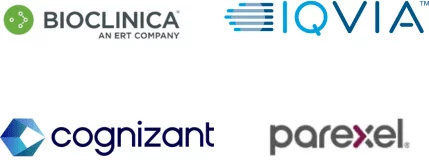
Aspire to become a Healthcare Consultant?
Curriculum Designed by Healthcare Industry Experts
PG Diploma in Healthcare Course
This foundational module introduces the essential functions that underpin effective management, including planning, organizing, leading, and controlling. Acting as a steppingstone, you will understand how managers create and maintain order within organizations. Students will explore time-tested theories of management and learn how decision-making drives success across various sectors. A major focus is organizational structure. How roles are defined, responsibilities are distributed, and systems are put in place to support efficiency in operations.
By the end of the module, learners will have a clear picture of how these concepts are applied in real-world settings, preparing them for deeper dives into specialized fields like healthcare management.
Expanding the basics, this module takes a more advanced look at how organizations are managed. It dives into topics such as managing people through human resources strategies, keeping employees engaged and motivated, and ensuring open, effective communication within teams. Students will examine how different leadership styles affect group dynamics and learn practical approaches to guiding organizations through periods of change.
Through case studies and practical examples, the module helps learners develop the interpersonal and strategic thinking skills needed to manage teams successfully and steer organizations toward their goals
This module explores how hospitals operate behind the scenes, revealing the systems and structures that make day-to-day healthcare delivery possible. It provides a detailed breakdown of hospital departments, illustrating how each one functions individually and in coordination with others. Emphasis is placed on the roles and responsibilities of various staff members, from administrative leaders to clinical personnel.
Students will also look at how patients move through the system, how departments communicate with one another, and how governance frameworks ensure smooth and accountable operations. The goal is to build a deep understanding of what it takes to run a hospital efficiently and effectively.
At the heart of any hospital are the services that directly impact patient care. This module covers how clinical services—such as inpatient, outpatient, emergency, and intensive care—are managed to maintain high standards and responsiveness. It also delves into diagnostic functions like lab testing and imaging, and therapeutic departments including surgery, pharmacy, and physical therapy.
Learners will gain insights into the complexities of overseeing these services, ensuring they function cohesively and deliver accurate, timely, and safe care. Operational efficiency and quality improvement are key themes, helping students appreciate the balance between clinical excellence and effective management.
Often operating in the background, support services are essential to the functioning of any healthcare facility. This module covers the day-to-day operations of departments like facilities management, housekeeping, IT, and security. In addition, it highlights the importance of robust risk management in maintaining a safe hospital environment.
Students will examine strategies for minimizing clinical and operational risks, including infection control protocols, legal compliance, and preparedness for emergencies or disasters. The module emphasizes the need for proactive planning and strong coordination to support the core mission of healthcare institutions.
This final module takes a broader view, moving beyond individual institutions to look at healthcare systems as a whole. It introduces students to public health policy, the structure of healthcare financing, and how services are delivered at community and population levels. Discussions will include how to make healthcare more accessible and equitable, and how resources are managed on a national scale.
The module also covers the critical roles played by government agencies and non-governmental organizations in shaping and supporting public health. Students will leave with a well-rounded understanding of how healthcare systems function and evolve over time.
FREE Career Counselling
We are happy to help you 24/7
A Student’s Journey



Industry Ready Training
Accredited Courses
Get Placed
Industry Ready Training
Equip yourself with skills and knowledge required to be successful in the healthcare-pharma or healthcare-IT industry. Enhance your communication and personality.
Accredited Courses
Earn credentials through online or in-person programs validating the enhancement of your skills and expertise in the healthcare IT and pharma sectors.
Get Placed
Gain access to volunteer, internship, and placement opportunities and apply real-world applications in healthcare settings like hospitals, CROs, and pharma companies.
Level up your Career with a PG Diploma in Healthcare Management in Kerala
Real people. Real results.
In-demand skills and Knowledge
Propel your career with Clini Launch’s healthcare Management program.

Potential Mentorship Advantage
Get personalized mentorship and support for your career choice.

Prepare for your Medical Career with Confidence
Upskill yourself for a rewarding career that you truly enjoy.

FAQs on PG Diploma in Healthcare Management in Kerala
What are the eligibility criteria for a PG Diploma in Healthcare Management in Kerala?
Generally, candidates need a bachelor’s degree in any discipline from a recognized institution, often with a minimum of 50% marks. Degrees in healthcare-related fields (medicine, nursing, pharmacy, allied health sciences) or business administration are often preferred. Some programs might also require or prefer candidates with prior work experience in a healthcare setting.
What is the duration of a PG Diploma in Healthcare Management program in Kerala?
Clini Launch’s PG Diploma programs in Healthcare Management in Kerala are 1-year in duration.
What kind of career opportunities can one expect after completing a PG Diploma in Healthcare Management in Kerala?
Graduates can find roles such as Hospital Administrator, Healthcare Manager (overseeing specific departments like finance, operations, or HR), Medical Superintendent, Health Information Manager, Quality Assurance Manager, Medical Tourism Coordinator, Healthcare Consultant, and positions in healthcare IT, analytics, and marketing.
Are there options for flexible learning, such as online or part-time PG Diploma programs in Healthcare Management in Kerala?
Yes, Clini Launch in Kerala and across India offer flexible learning options for PG Diploma in Healthcare Management, including online classes, part-time programs, and weekend batches, catering to working professionals.
How does a PG Diploma in Health Management differ from an MBA in Healthcare Management?
A PG Diploma in Health Management typically focuses on specialized management skills within the healthcare industry, providing focused knowledge for specific roles. An MBA in Healthcare Management, while also specialized, usually offers a broader understanding of general business management principles applicable across various sectors, in addition to healthcare-specific modules, and is often a longer program.
What are the core subjects covered in a PG Diploma in Health Management program?
Common subjects include healthcare operations, financial management in healthcare, human resources in healthcare, quality control and assurance, healthcare laws and ethics, health system management, medical terminology, and often a project work or internship.
Is work experience mandatory for admission to PG Diploma in Health Management programs?
While some programs may prefer or give weight to work experience in healthcare, many PG Diploma programs in Health Management also admit fresh graduates without prior work experience. It largely depends on the specific institution’s admission policies.
What are the advantages of pursuing a PG Diploma in Health Management for healthcare professionals?
For healthcare professionals, a PG Diploma in Health Management offers a pathway to leadership and administrative roles without committing to a full master’s degree. It equips them with the necessary management skills to enhance efficiency, improve patient care, and take on supervisory or managerial responsibilities in hospitals and other healthcare settings.
What are some popular Diploma Courses available in the medical field in Kerala?
Popular diploma courses in the medical field in Kerala include Diploma in Medical Laboratory Technology (DMLT), Diploma in Radiological Technology (DRT), Diploma in Operation Theatre & Anaesthesia Technology (DOTAT), Diploma in Dialysis Technology (DDT), and Diploma in Pharmacy (DP), among others.
What are the general eligibility criteria for admission to Diploma Courses in the medical field in Kerala?
For most diploma courses in the medical field, candidates typically need to have passed the Plus Two (10+2) or Higher Secondary Examination with Physics, Chemistry, and Biology as optional subjects. Some courses might have specific percentage requirements or age limits.
Which are some recognized institutes offering Diploma Courses in the medical field in Kerala?
Clini Launch offer recognized diploma courses, including Government Medical Colleges, DME (Directorate of Medical Education) affiliated paramedical institutes, and private colleges like KIMSHEALTH Institute of Paramedical Sciences, ITEES College of Health Sciences, and others listed by regulatory bodies.
What is the career scope after completing a Diploma Course in a medical field in Kerala?
Graduates of medical diploma courses can find employment as technicians and assistants in hospitals, clinics, diagnostic laboratories, and research institutions. Specific roles depend on the specialization, such as Medical Laboratory Technician, Radiographer, Operation Theatre Technician, Dialysis Technician, or Pharmacist.
Are all 1-year diploma courses in the medical field considered post-graduate diplomas?
No, not all 1-year diploma courses in the medical field are post-graduate diplomas. Many are simply “diplomas” that can be pursued after 10+2, while “Post Graduate Diplomas” (PG Diplomas) specifically require a Bachelor’s degree for admission.
What kind of practical training is typically included in a 1-year diploma course in the medical field?
1-year diploma courses in the medical field usually emphasize hands-on practical training. This often includes laboratory work, clinical rotations, internships, and on-site training in relevant healthcare settings to provide students with real-world experience.
What are the career prospects for someone completing a 1-year diploma course in a medical field in Kerala?
Career prospects after a 1-year diploma vary by specialization but generally lead to supportive roles in healthcare. For instance, a DMLT graduate can work as a lab technician, while a DOTAT graduate can assist in operation theaters. These roles are essential to the functioning of healthcare facilities.
Do 1-year diploma courses in the medical field offer opportunities for further education?
Yes, while they provide immediate entry into the workforce, many 1-year diploma courses can serve as a steppingstone for further education. Graduates might pursue advanced diplomas, bachelor’s degrees (e.g., BSc in relevant allied health sciences), or even post-graduate studies in their specialized field, often with some credit transfer or lateral entry options.
What is the primary objective of a Post Graduate Diploma in Health Administration?
The primary objective is to equip individuals with specialized management and administrative skills required to effectively lead and manage healthcare organizations, hospitals, clinics, and other health-related facilities.
What are the key areas of study in a Post Graduate Diploma in Health Administration syllabus?
The syllabus typically covers subjects like principles and practices of management, organizational behavior, human resource management in healthcare, financial management, healthcare information systems, quality assurance, legal aspects of hospital management, and planning and management of patient care and support services.
How does a Post Graduate Diploma in Health Administration prepare individuals for leadership roles?
The program focuses on developing leadership skills, strategic decision-making abilities, and an understanding of healthcare systems, policies, and regulations. It often includes case studies, project work, and internships to provide practical exposure to administrative challenges and solutions in healthcare
Can a Post Graduate Diploma in Health Administration lead to roles in public health organizations?
Yes, while often focused on hospital administration, the skills gained in a Post Graduate Diploma in Health Administration are highly transferable and can lead to roles in various public health organizations, government health agencies, and non-governmental organizations involved in healthcare delivery and policy.
Clini Launch recent placed students
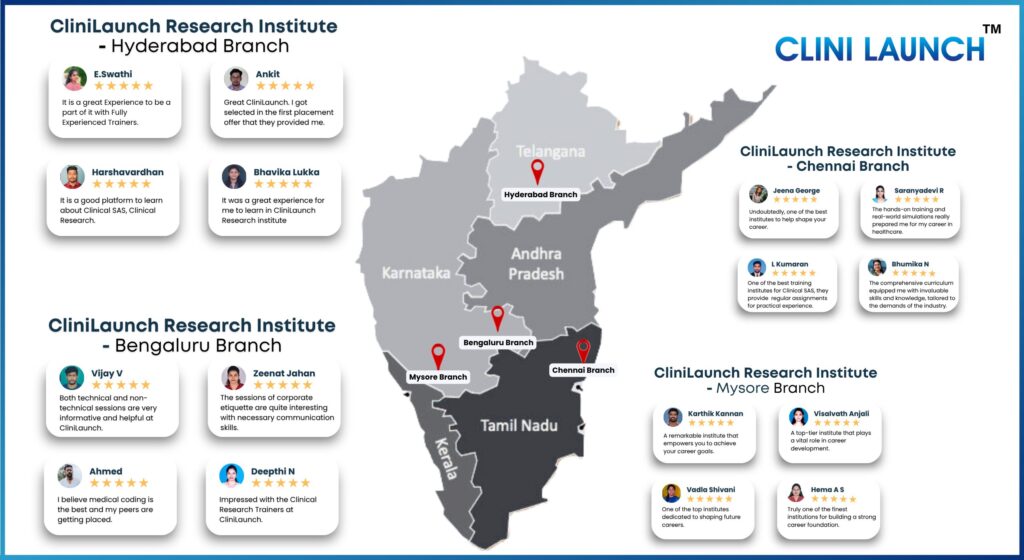
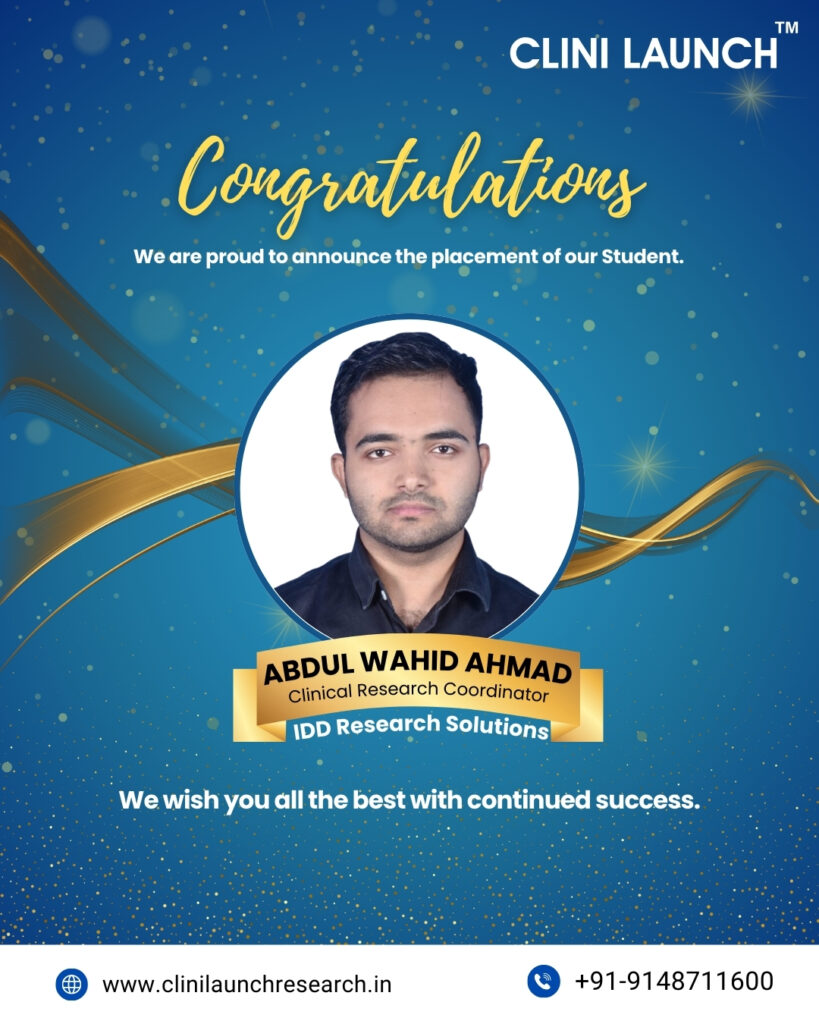
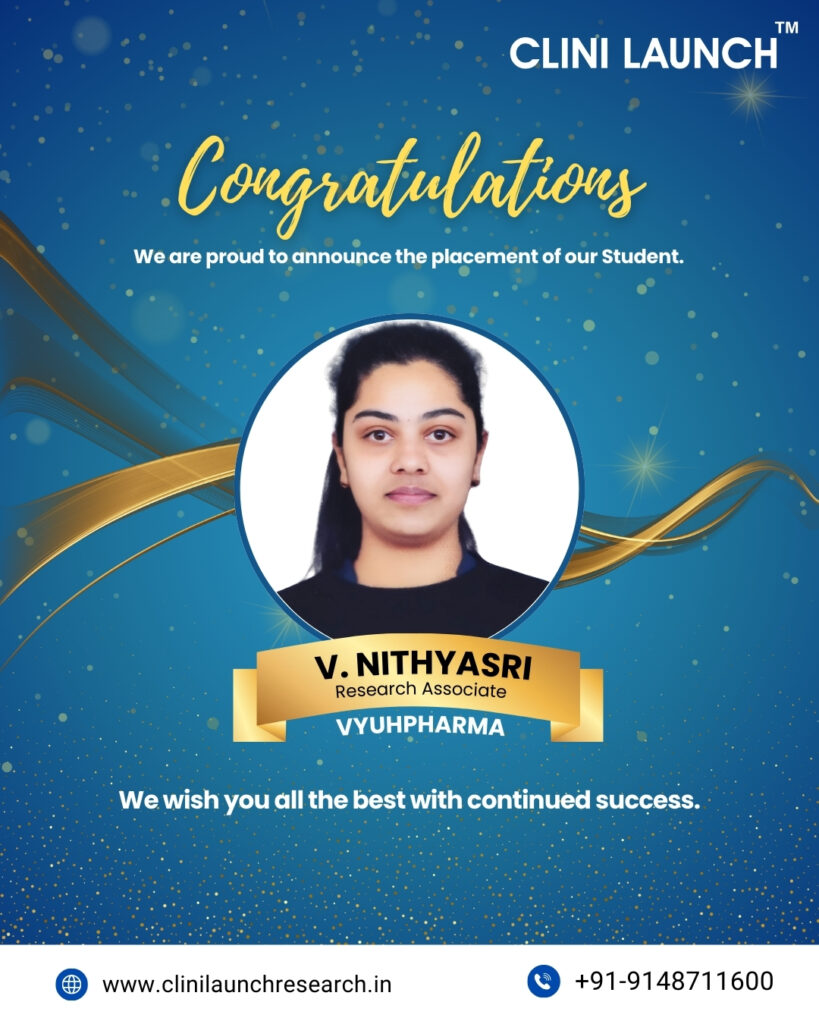
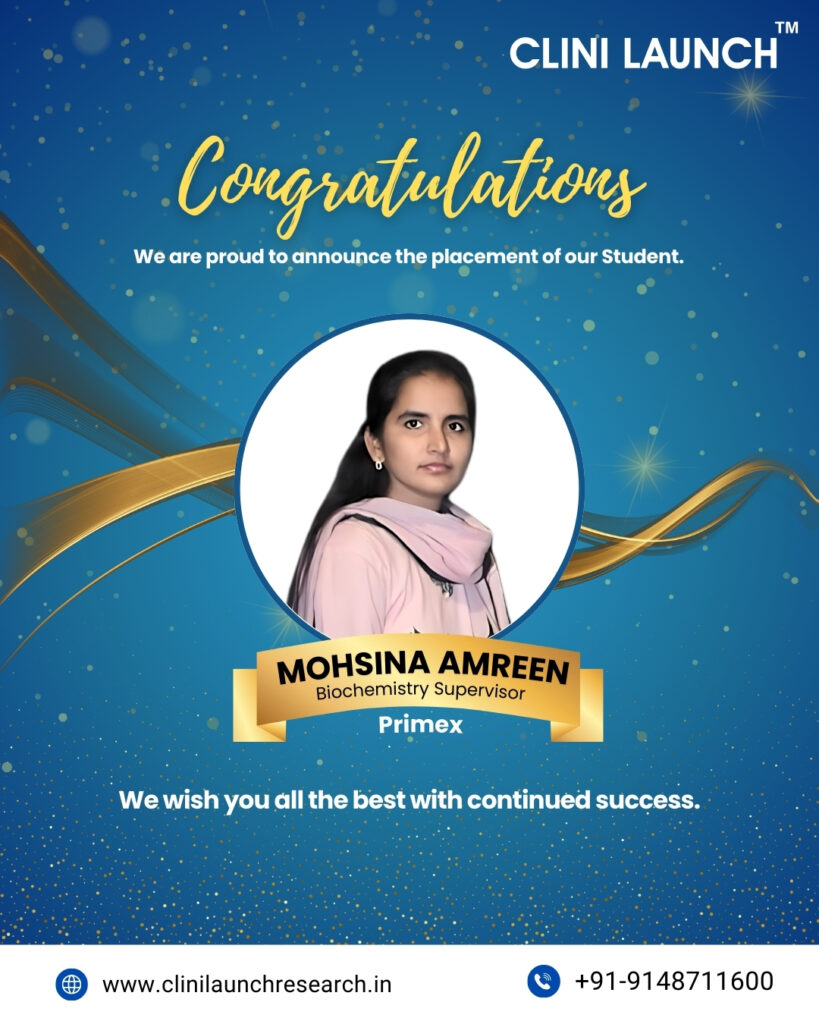
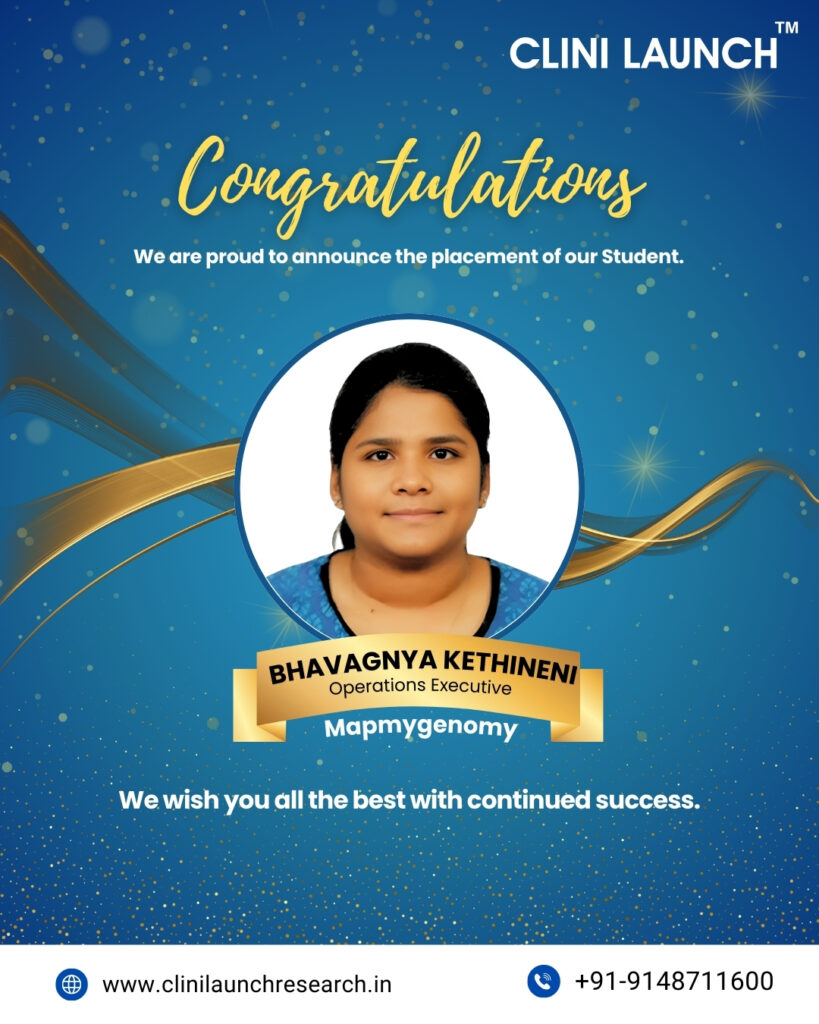
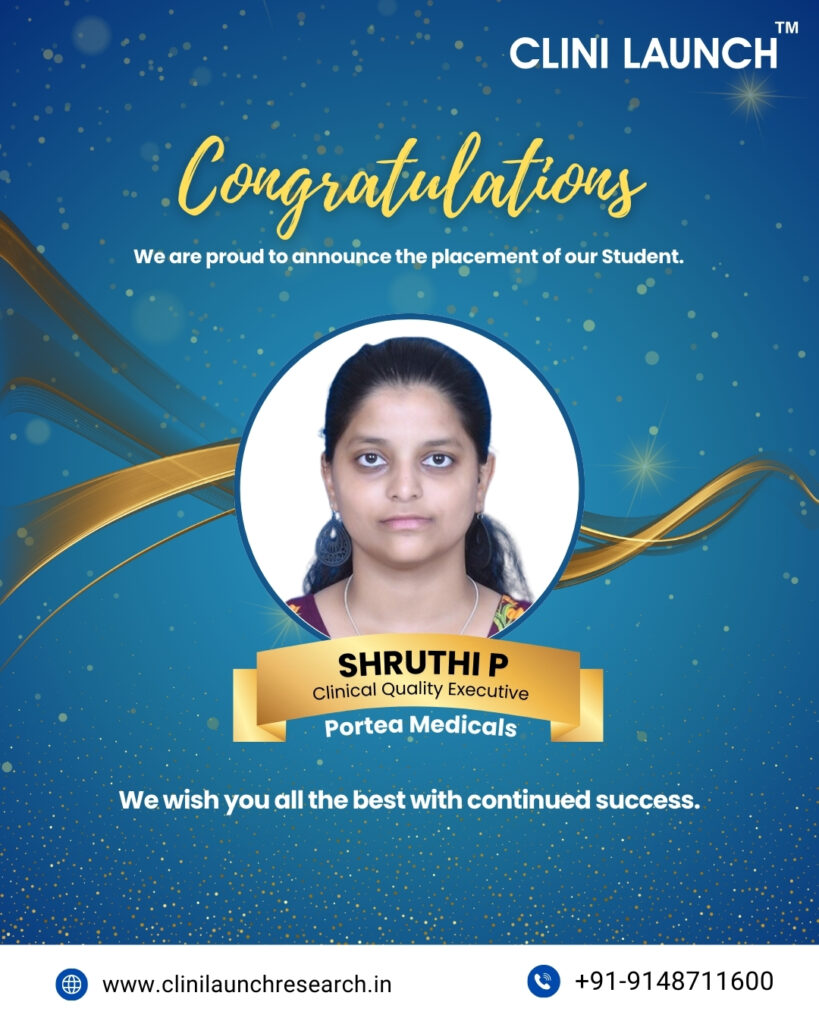


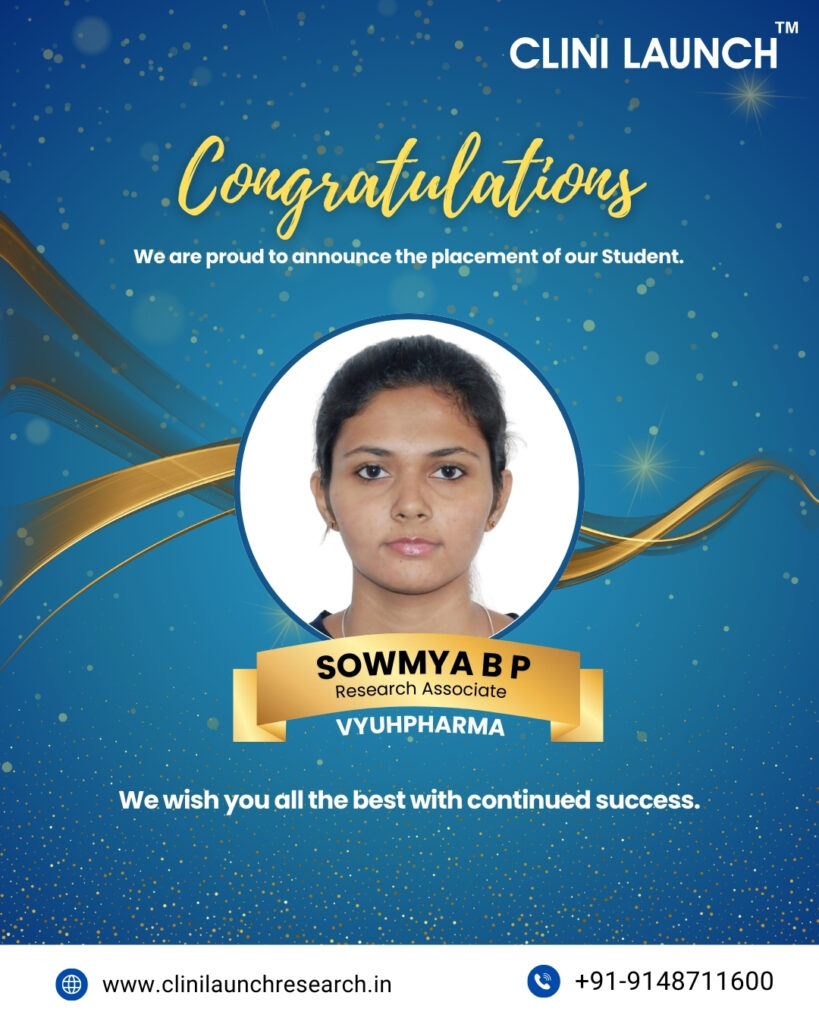
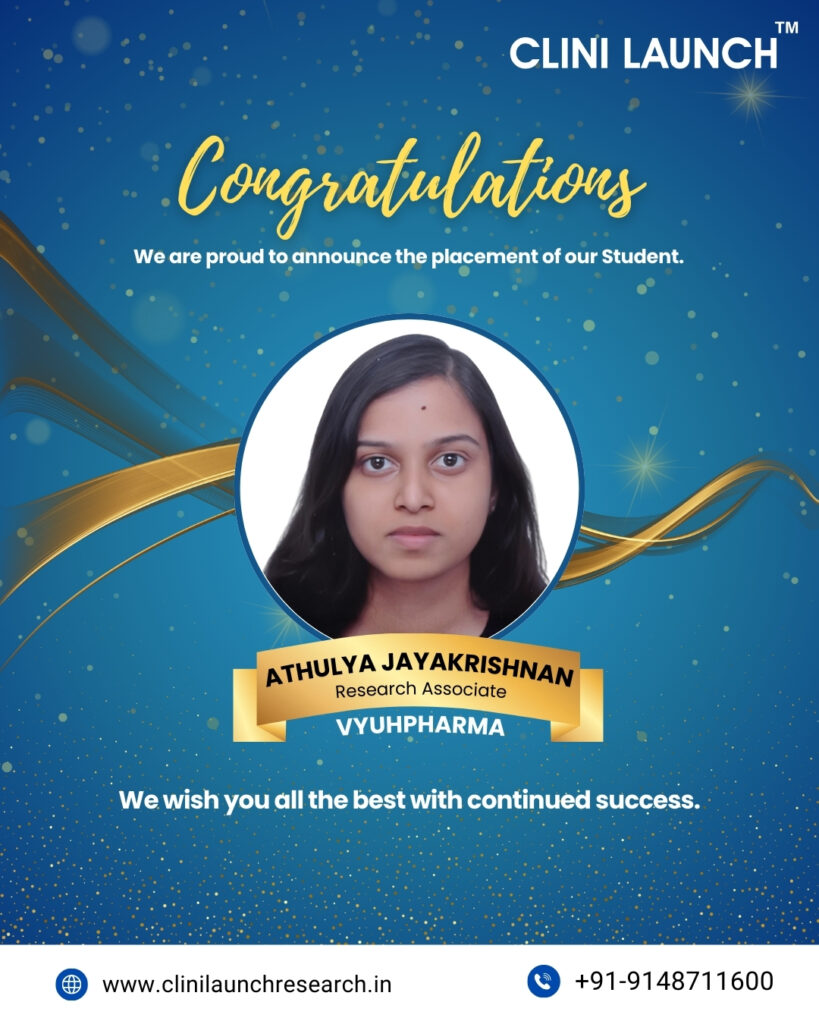
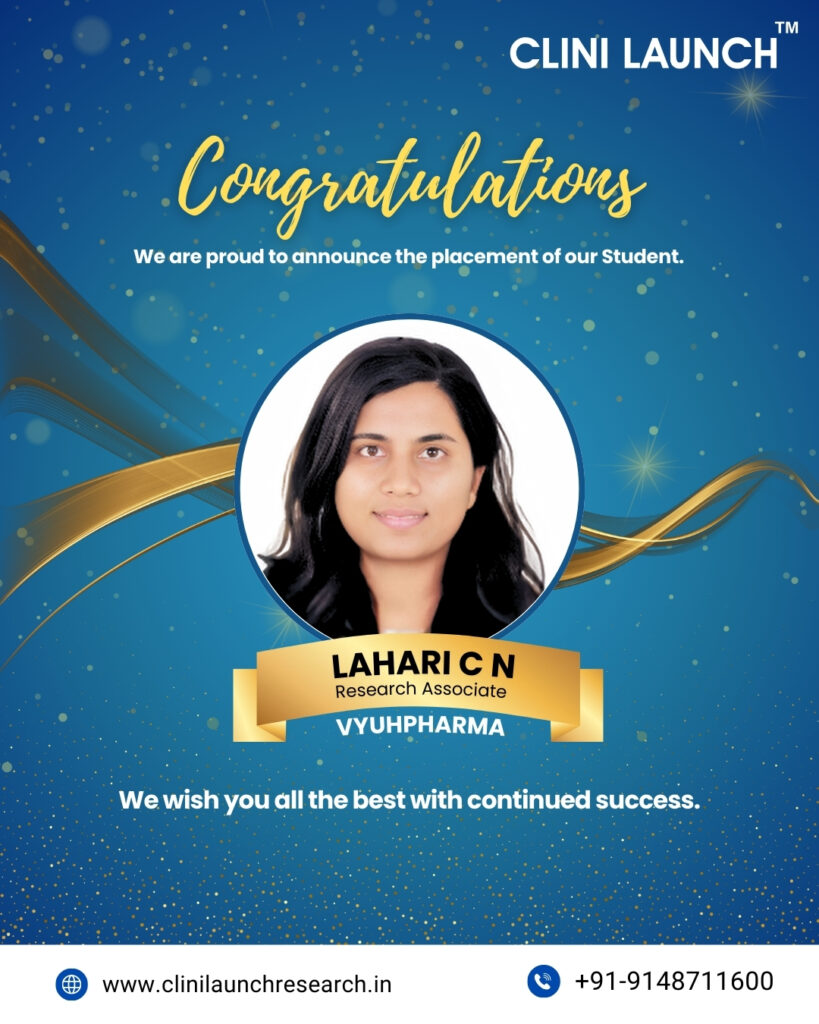

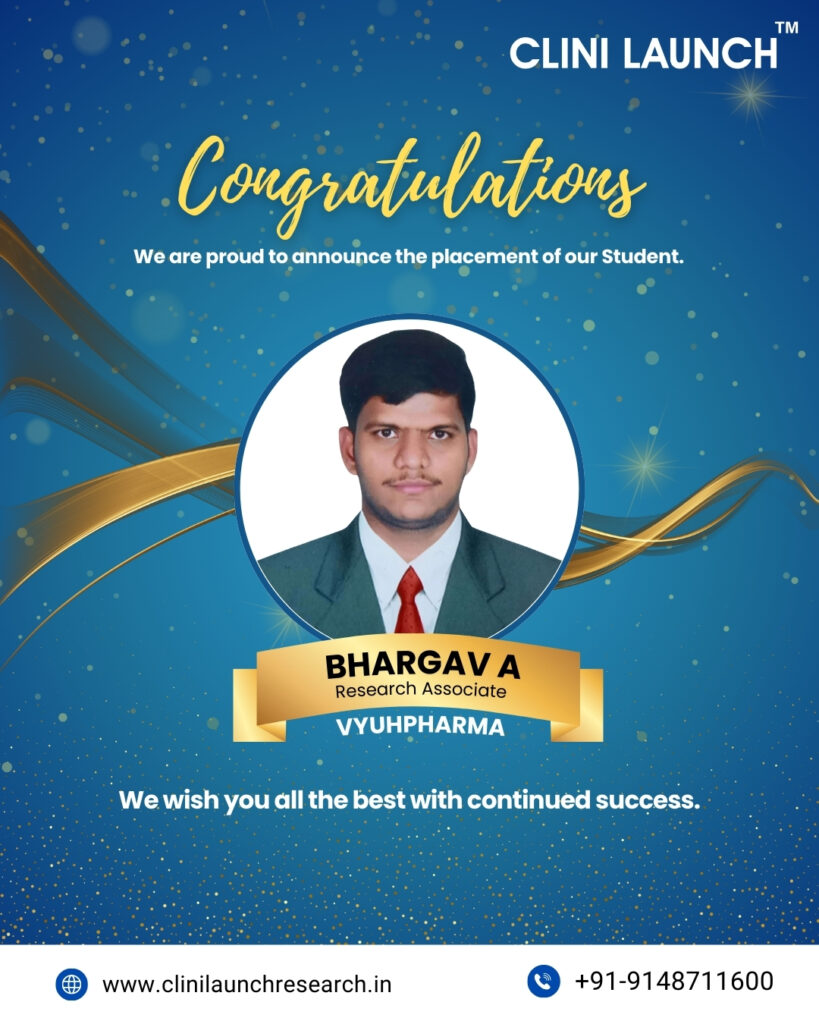

Testimonials
Upskilling does make a difference. Graduates speak out. Hear what our students and professionals are saying about their upskilling journey with Clini Launch.

